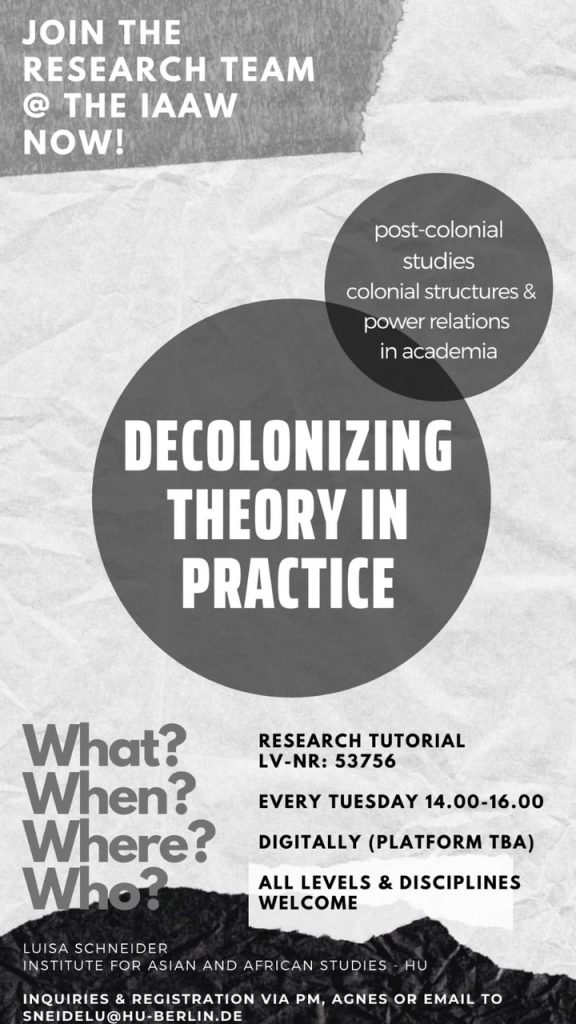William Blakemore Lyon & Luisa Schneider

This project, student-run and based at Humboldt University of Berlin under the lead of William Blakemore Lyon and Luisa Schneider, offers interviews with academics and students from Southern Africa on archives, history and the present.
It was originally conceptualised during the 2020 Humboldt University of Berlin (HU) course entitled, ‚“Little Research Value“? : Seeking to understand migrant labours‘ past and how it affects the present‘ (taught by Lyon). The course concept originated from the work of University of Namibia’s Dr. Ellen Ndeshi Namhila and her book, „Little Research Value.“ African Estate Records and Colonial Gaps in a Post-Colonial National Archive. Namhila examined thousands of African Estate Files, which were rediscovered in the 2010s in the National Archives of Namibia after having thought to have been destroyed by the former colonial Apartheid regime of South Africa. The files had been referred to by the colonial South African government in Namibia as being of „….little research value and no functional value“ because of the fact that they were not concerned with the colony’s inhabitants of European descent (Namhila 2018, 188). In complete contrast to the Apartheid state’s perspective, for modern researchers, the files are of great importance as they are one of the few groups of files within the Namibian colonial records that specifically focus on black Africans. (see Lyon’s article, From Labour Elites to Garveyites). Furthermore, these ‚Native Estate Files‘ (NES) are also useful for black Namibians trying to access their or their ancestor’s civic records, or simply trying to learn more about their past (Namhila 2018, 13). Inspired by Namhila’s innovative work and research, this course invited scholars from Namibia to give guest lectures.
The first guest presentation (via zoom) was by Dr. Kletus Muhena Likuwa of the University of Namibia (UNAM) regarding his research on migrant labour from the Kavango region of Namibia and his use of oral sources. Following an intriguing lecture, students showed growing interest in hearing perspectives from Namibians and Southern Africans connected to research and colonial archives. As the course necessitated a final project, we decided to reach out to colleagues in Namibia and Zimbabwe to conduct interviews on these themes and then to create a website. Namibia was chosen as the course had focused primarily on the country’s history, and Zimbabwe was chosen as we were able to establish some good connections with colleagues there. We did not intentionally choose to not include other countries but as we had limited time and resources we decided to keep the number of interviews at around 10. The interviewees also included academics from Namibia and Zimbabwe who are currently based in Europe. The project will be expanding this year (2021) through a HU course taught by Luisa Schneider, who had previoulsy been a student in the original class.
The ideas and creative insights of the various interviewees recommend useful pathways for scholars in Southern Africa, the Global North and beyond to conduct better research. Most importantly this project puts students, scholars and academics based in both Southern Africa and the Global North in more direct contact. We are very thankful for the time and wisdom shared in this project and we hope new networks formed through ‚Southern African Perspectives‘ continue into the future.
„The archive has its limitations. Archives are a product – just like history shows – of the dominant class, the dominant politics, the dominant ideologies of the time, etc.“ (Excerpt of the interview with Dr. Ushehwedu Kufakurinani of the University of Zimbabwe)

Image (on the referred website): 'Movement' by the Namibian artist Alfeus Mvula
Advertising for Luisa Schneider's upcoming course that will continue the project. 